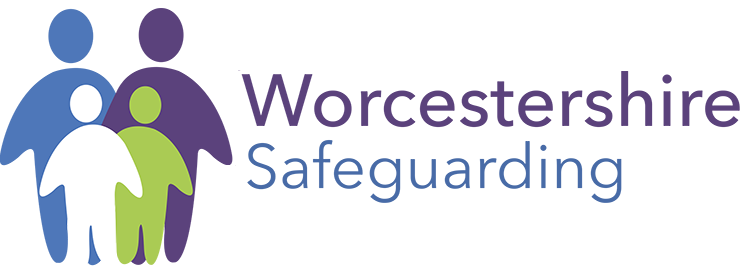Policies, Procedures & Guidance
Worcestershire Safeguarding Adults Board Guidance
The following guidance has been developed locally. They include local policies, procedure’s and pathways, alongside agreed protocols on how partner organisations should work together.
Most of the current local policies have been developed to cover the county of Worcestershire. However with the introduction of the Integrated Care Board (ICB) and System (ICS) the footprint of the ICB and the Health and Care Trust expanded across both Herefordshire and Worcestershire. West Mercia Police’s reach also covers these two counties, alongside Shropshire. Both the WSAB and Herefordshire Safeguarding Adults Board (HSAB) have adopted a joint policy framework which sets out the approach for developing shared policies, where feasible.
General Guidance
- Advance Decisions to Refuse Treatment
- Agreed Support Plan has not engaged the person / family
- Assisted Suicide Policy
- Complaints Process V2 December 2022
- Dog Bite Policy
- Dog Bite Prompt
- Dog Bite PF Drop Down
- Escalation Policy: Resolution of Professional Disagreements
- Escalation reporting template
- Female Genital Mutilation (FGM) pathway
- Information Sharing Protocol (WSAB)
- Joint Working Protocol between West Mercia Women’s Aid and
Worcestershire Adult Social Care for individuals with care and support needs
experiencing domestic abuse - Making Safeguarding Personal (MSP) Leaflet
- Missing person guidance consideration for residential care and domiciliary care V2 FINAL
- Next of Kin – Understanding Decision Making Authorities
- Non Engagement Flowchart
- Organisational Abuse Procedures
- Protocol for responding to allegations about people in a position of trust working with Adults
- Positions of Trust Incident Notification Form
- Using Professional Judgements in Safeguarding Adults – Guidance for Professionals
- WSAB Communication and Engagement Strategy Final V2 January 2024
Mental Capacity Act and Best Interest Guidance
- Best Interest Decision Meeting Guidance
- Easy Read Guidance to Mental Capacity
- Mental Capacity Act 2005 – Guidance and Policy for Staff
- Mental Capacity Act and Executive Function Links to SARs
- Mental Capacity Assessment Form (MCA1) Updated October 2021
- Mental Capacity Assessment Form (MCA2) – Best Interest Assessment & Record of Actions
- Quality Assurance Checklist for Mental Capacity Act Policies: Self-assessment for Organisations
- MCA SARs Briefing Resource
Safeguarding Adults Reviews Guidance
Self-Neglect Guidance
- WSAB Self-Neglect Policy Final V3 June 2024
- WSAB Multi agency Self-Neglect Pathways V2 June 2024
- Self Neglect Safety Plan TEMPLATE
Further information and resources on self-neglect can be found on our dedicated self-neglect page
Link to WSAB Self-neglect page
Adult Social Care Safeguarding Guidance
Reference to National Guidance
In a number of practice areas the WSAB has not produced local multi-agency guidance but have agreed to refer to national guidance. These include
Complex Adults Risk Management (CARM) framework
This guidance seeks to provide front line practitioners with a framework to facilitate effective working with adults who are at risk of significant harm due to their complex needs, and where the risks cannot effectively be managed via other processes or interventions, such as section 9 care and support assessment or section 42, safeguarding enquiry under the Care Act 2014.
The Complex Adults Risk Management (CARM) framework should be used when the adult’s engagement with support is intermittent or where it has proved difficult to engage with the adult, and the risk is significant, and an individual agency procedures have not been able to resolve the problem(s).
For more information on the CARM and details of how to make a referral please follow the links below:
WSAB Privacy Statement
The WSAB Privacy Notice explains how the Worcestershire Safeguarding Adults Board (WSAB) collects, uses and shares personal information in order to carry out its statutory duties and responsibilities. It can be found by following this link:
Worcestershire Safeguarding Adults Board Privacy Notice | Worcestershire County Council
Competency Frameworks and Assurance Checklists
- Multi Agency Adult Safeguarding Competency Framework
- Multi-Agency Mental Capacity Act & Deprivation of Liberty Safeguards Competency Framework
- Quality assurance checklist for Safeguarding Adult Policies:
Self-assessment for organisations
WSAB Quality Assurance Framework (QAF)
The QAF sets out how the WSAB will provide assurance that the WSAB and its constituent partner agencies
have effective systems, structures, processes and practice in place to improve outcomes and experience in the context of safeguarding adults at risk. It is overseen by the Performance and Quality Assurance Sub-group. A copy of the QAF can be found by following this link:
Whistleblowing
- Details of the Department of Health Whistleblowing Helpline

